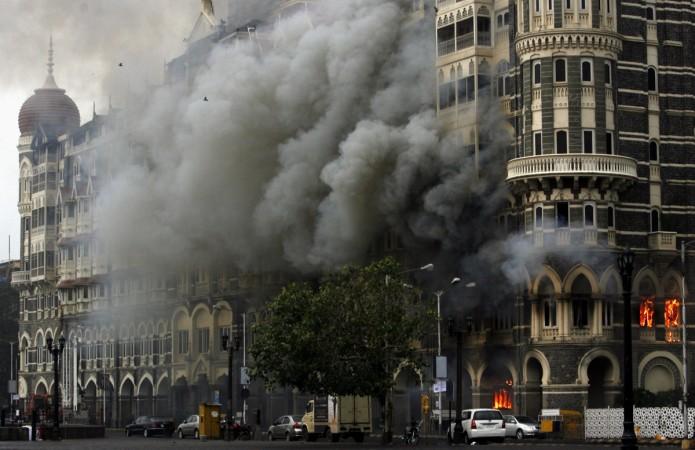
At a time when India is busy lauding its air force for the early morning strike on Pakistan-based terror camps on February 26, one person seems especially happy and proud about it and remembers how the strike could have been carried out even after the 26/11 Mumbai attacks.
Mohonto Panging, a former Indian Air Force officer who was a Wing Commander at the time of the Mumbai attacks, has revealed that the IAF was deployed and ready to hit terror camps in Pakistan's Muzzafarrabad in 2008 as well. However, the armed forces couldn't carry out the operation as an approval from the government never came.
The IAF is known to have demolished multiple terror camps in Pakistan in a pre-dawn operation that lasted for 20 minutes on Tuesday. It has been said that 12 Mirage 2000 jets were a part of the strike and dropped about 1,000-kilogram of laser-guided bombs on terror camps. "At 0330 hours on 26th February, a group of Mirage 2000 Indian Fighter jets struck a major terrorist camp across the LoC and completely destroyed it," ANI reported.
After the strike, Panging took to Twitter and hailed the armed forces for the successful operation. "Finally terrorist camps in POK hit by Laser Guided Bombs from IAF Mirage 2000. We were about to hit POK camps in Muzzafarrabad after Mumbai attacks in 2008. Finally the Govt did not decide. Der Aye Par Durusht Aaye. Cheers!!" he wrote. The former IAF officer then added that if the IAF had struck the terror camps in 2008, India may not have lost so many lives to terrorism.
"As Air Warriors, IAF was prepared for Surgical Strikes at POK Camps after the Mumbai attacks in 2008 also, but the go ahead did not come. If the go ahead had come, maybe we would not have lost so many Indian lives to cross border terrorism! IF ONLY...!!" he said.
The retired officer, who is now an entrepreneur, author, and columnist, also spoke to the Times of India and said that he was, at the time, leading the Sukhoi squadron and the forces had a plan in place for the strike. "It was a secret plan and I had lied to my boys that we were going to different place...it's a long story. We were deployed and waited in all readiness to strike for nearly one month but the government did not approve it," he told the daily.
This is not the first instance that the government has been indecisive about retaliatory attacks on terrorists. Former prime minister Manmohan Singh often received the ire of the opposition and people in general for being hesistant to act against terrorism. Singh is also said to have been indecisive about the response to the 2001 Parliament attacks.
The BJP too has, in the past, called Singh an "indecisive" PM who would take tough measures to counter terrorism issues. "India needs an effective leader. It has suffered because of an indecisive prime minister. It needs a strong government," the BJP had once said.
"The impact of cross-border terrorism is now being increasingly felt even outside Jammu & Kashmir. The lowering of guard by the UPA has resulted in an increase in the number of attacks."
Former PM Atal Bihari Vajpayee too received flak for being hesistant and a tad slow in dealing with the Kandahar hijack. The December 1999 hijack of Indian Airlines flight IC 814 involved five terrorists, who demanded the release of Maulana Masood Azhar and few others. After hours of discussion, the Vajpayee government was forced to release three terrorists and save the lives of 176 passengers and 15 crew members.
Meanwhile, former Deputy National Security Advisor Leela K Ponappa also believes that such a strike should have been carried out after the 26/11 attacks and that Tuesday attack was an act of "self-defence," reported News18.
The strike on February 26 was in response to the February 14 Pulwama attack, in which about 40 CRPF personnel lost their lives and scores of others were injured. Terror group Jaish-e-Mohammed had claimed responsibility for the attack.











